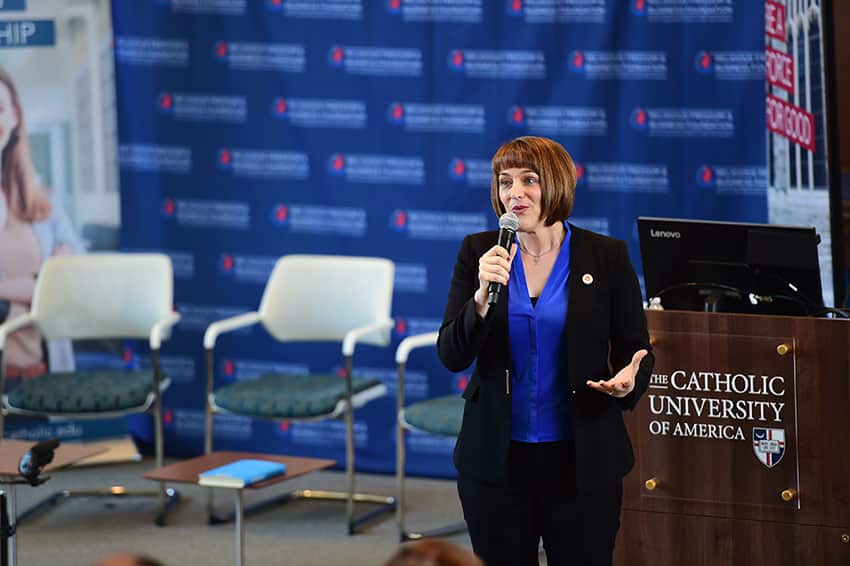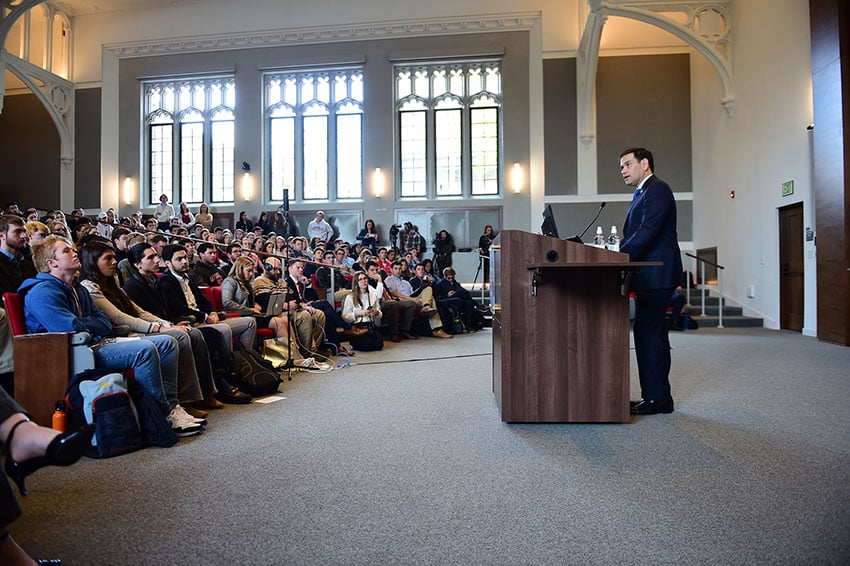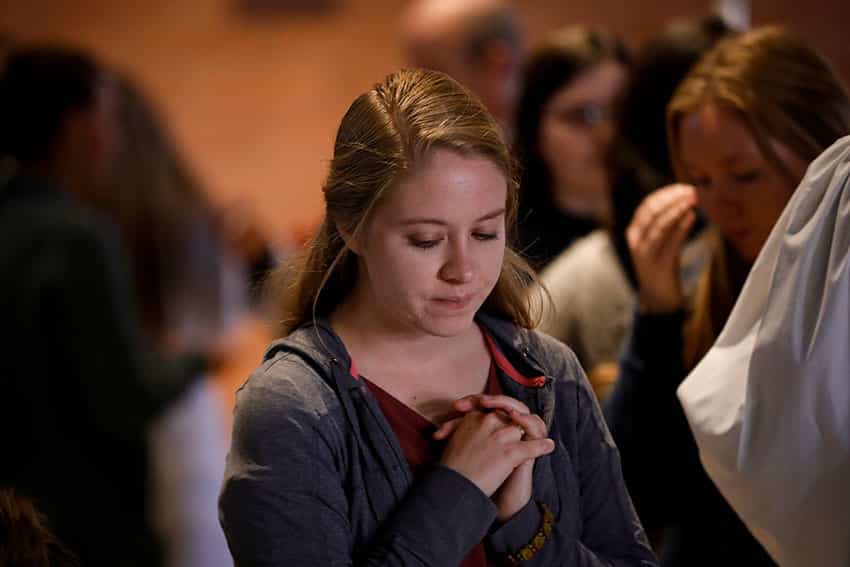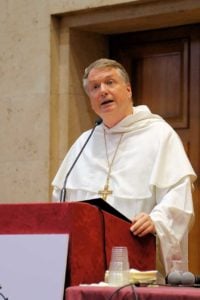
This is the second of two reflections on adult faith formation by Dr Christine Wood
A lacuna is usually defined as an unfilled space or a gap, where something is missing. Arguably the central issue arising out of the 2020 Plenary Council’s Listening & Dialogue Phase is a widespread call for ‘adult faith formation’. Many areas in the life of the Church in Australia manifest a serious lacuna in the formation of adult Catholics, not the least of which is in the area of the lay apostolate.
The Final Report for the Plenary Council Listening & Dialogue Phase states, “Many participants spoke about the gap in adult faith formation resources and opportunities, and especially on new and emerging topics. There were many requests for regular parish-based adult catechesis.” The report provides evidence from a submission:
“The Australian Church has not had a tradition of offering adult faith education including the social sciences at tertiary level to the laity especially outside the capital cities. We need an educated and informed Catholic culture for the laity in Scripture, theology, Church history, philosophy, social justice, etc. For adults, a continued and ongoing Catholic formation and the implications on social and moral aspects, such as IVF, surrogacy, transgender fluidity ideology, etc.” (Final Report, 38).

Evangelisation and the Lay Apostolate
It becomes clear when reading the Final Report that the Church in Australia has not been doing enough in the area of adult faith formation. Rather than simply focusing on formation for liturgical ministries and sacramental preparation, the Church must extend her vision for formation to lay Catholics whose primary role is to sanctify the world.
If the Church exists to evangelise, it is of primary importance to form lay evangelisers since they have the most access to non-believers. It is imperative that the Plenary Council address the faith formation lacuna here in Australia.
Formation for the Lay Professions
Since our Catholic faith is not a private reality, but is to inform every aspect of our lives and be shared with others, it’s imperative that the Church equip lay people in the professions —medicine, science, law, politics, education, military, journalism, etc. — to live out their Christian vocation in the secular world, to be leaven in the world.
Vatican II’s Decree on The Apostolate of the Laity (Apostolicam actuositatem, 1964) has largely gone unheeded in Australia. While the lay faithful are perhaps more active in parish life now than prior to Vatican II, on the whole, are they more active in evangelising and sanctifying the temporal order? Rather than attempting to situate themselves in the sanctuary, the laity are called to take Christ into the world. But to do this they need formation.

Bioethics, Catholic Social Teaching, Social Justice…
In addition to continuous spiritual and doctrinal formation, laity require formation that is specific to their particular activities in the world. Those in the medical professions, for instance, require formation in bioethics that a lawyer or economist would not necessarily require. Indeed, one group of Catholic healthcare practitioners asked precisely for this:
“To bring our practice into conformity with God’s divine plan, we believe that God is asking us individually, and as a group, to know and understand more fully those Church teachings, and their underlying principles, which relate to health care, and to integrate them into our practice. In particular, we seek more instruction on frequently encountered bio-ethical issues such as contraception vs fertility awareness based methods (FABM) i.e. modern natural family planning (NFP), abortion, same-sex attraction, transgenderism, embryonic stem cell research, end-of-life decision-making, etc. … This may involve applied teaching in philosophy, theology, history, Church law and bioethics.” (Final Report, 39-40)
Catholics engaged in politics and business require particular formation in divine and natural law, subsidiarity, and commutative and distributive justice; whereas those in the military require formation on the problem of evil, sanctity of life, just-war theory, moral virtues, and the principle of the double effect.

The Common Good and Moral Virtues
The laity in all workplaces would do well to be formed in Catholic social teaching and the moral virtues so they can identify and strive for the common good, the modes of authentic participation in society, and above all, to keep in mind the preferential option for the poor.
Well-formed lay Catholics can work towards the evangelisation and sanctification of peoples outside the Church. They can inculcate a Christian conscience among people so that society can become more open to the work of the Holy Spirit. If we are to build the civilisation of love envisioned in the Gospel we need well-formed, faith-filled lay Catholics working in all the professions.
Practical Suggestions
Diocesan catechetical institutes can be established to form the baptised in Scripture, theology, philosophy, spirituality, and Catholic social teaching. Those working in the professions could come to these institutes to hone their knowledge in areas of bioethics, natural law, Catholic social teaching, Scripture, spirituality, and philosophy.
Online resources like Formed.org are available to individuals, families, and parishes to provide clear teaching to help the laity embrace their vocation to sanctify the world. Parishes could encourage small groups or book clubs to study Catholic social teaching on bioethical, family, cultural, and economic issues in order to prepare participants to share the Gospel message with the wider society.
If the Church is to continue in Australia into the next century, the Plenary Council would do well to consider adult faith formation for the lay apostolate.
